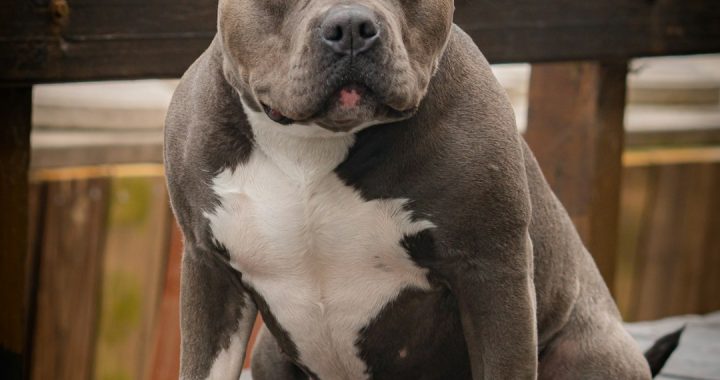Golden Retriever Life Span: How Long Do They Live and Why?

When you first hold that fluffy golden puppy in your arms, the question that whispers in the back of your mind is, “How many years will we have together?” It’s a normal, loving curiosity. The good news is that with today’s veterinary care, nutrition, and a bit of common‑sense TLC, many Golden Retrievers are living longer, healthier lives than ever before.
Typical Lifespan of a Golden Retriever
Most sources agree that a well‑cared‑for Golden Retriever can expect to live 10‑13 years. A 2020 study published in the Journal of Veterinary Internal Medicine reported a median lifespan of 12.2 years for a cohort of 2,800 dogs. The American Kennel Club (AKC) also lists an average of 12‑13 years.
These numbers are up from roughly 8‑9 years in the mid‑20th century, thanks largely to breakthroughs in preventive medicine, better diets, and a rise in responsible breeding practices.
Factors That Influence How Long Your Golden Lives
- Genetics: Inherited traits can predispose a dog to certain cancers or orthopedic issues.
- Size & Build: Larger breeds generally have shorter lifespans, but a healthy weight mitigates this.
- Health Screenings: Early detection of hip dysplasia, eye disease, and heart problems can add years.
- Diet & Weight Management: Caloric control helps avoid obesity‑related diseases.
- Exercise & Mental Stimulation: Keeps joints and brain sharp.
- Preventive Veterinary Care: Routine exams, vaccinations, and dental cleanings lower mortality risk.
- Environment: Safe, low‑stress living quarters and regular parasite control matter.
What Recent Studies Say
Researchers at the University of California, Davis analyzed death certificates of over 5,000 Golden Retrievers and found that cancer was the leading cause of death (55%). The same study concluded that dogs receiving at least one annual wellness exam after age 7 lived 1.5 years longer on average than those who did not.
Common Health Issues in Golden Retrievers
Understanding the medical “watch‑outs” can help you act before a problem becomes life‑threatening. Below is a quick roundup of the most frequent culprits.
1. Cancer
- Hemangiosarcoma: A malignant tumor of blood vessel cells that often goes unnoticed until an internal bleed occurs.
- lymphoma: Affects the lymphatic system; can show up as swollen lymph nodes under the jaw or armpits.
- Mast cell tumors: Skin lesions that can be aggressive if left untreated.
2. Orthopedic Problems
- Hip dysplasia: The hip joint develops abnormally, causing arthritis and pain.
- Elbow dysplasia: Similar issue in the front legs, leading to lameness.
3. Heart Conditions
- Subvalvular aortic stenosis (SAS): A narrowing of the heart’s outflow tract that can cause sudden collapse.
4. Endocrine Disorders
- Hypothyroidism: Low thyroid hormone leading to weight gain and lethargy.
- Addison’s disease: A deficiency in adrenal hormones that can be fatal if not managed.
5. Obesity & Related Risks
Studies indicate that a Golden Retriever with a body condition score (BCS) of 8–9 (out of 9) has a 35% higher risk of premature death compared to a dog at ideal weight (BCS 4–5). Overweight dogs also develop arthritis faster and have higher rates of diabetes.
The Role of Nutrition in Longevity
Food is the foundation of health. When you feed your Golden high‑quality protein and balanced fats, you’re giving their immune system the nutrients it needs to fight disease.
Key Nutritional Tips
- Lean Protein: Aim for 18–22% protein on a dry‑matter basis. Sources like chicken, fish, and lamb are easy on the kidneys.
- Omega‑3 fatty acids: Fish oil (EPA/DHA) helps reduce inflammation and may lower cancer risk. I’ve noticed my Golden, Max, sheds less and his coat looks shinier after adding 1 % fish oil to his meals.
- Controlled Calorie Intake: Use a calorie‑based calculator or ask your vet about portion sizes. For an adult 70‑lb Golden, 1,200–1,400 kcal per day is typical, but adjust for activity level.
- Joint‑Support Supplements: Glucosamine, chondroitin, and MSM can protect cartilage. Choose products with the National Animal Supplement Council (NASC) seal.
- Fresh Water: Adequate hydration supports kidney function and reduces the risk of urinary stones.
Remember, treat‑based rewards should never exceed 10 % of total daily calories. Over‑feeding treats is one of the fastest routes to weight gain.
Exercise and Mental Stimulation
Golden Retrievers were bred to retrieve, swim, and spend hours in the field. Without daily activity, they become bored, gain weight, and develop depressive‑like behaviors.
Daily Exercise Blueprint
- Morning Walk: 20‑30 minutes at a brisk pace on leash.
- Afternoon Play: A 15‑minute game of fetch in the yard or a neighborhood park.
- Swim Session (if possible): The low‑impact, high‑reward activity ideal for senior joints.
- Evening Enrichment: Puzzle toys, hide‑and‑seek, or basic obedience drills for mental gymnastics.
My own routine with Bella—my 9‑year‑old Golden—includes a 2‑mile jog, then a quick splash in the creek on weekends. Not only does she sleep soundly afterward, but I’ve also seen a dramatic drop in her arthritis flare‑ups.
If you have limited space, consider indoor activities: treadmills set to a gentle incline, dog‑safe agility tunnels, or a “snuffle mat” for嗅探 (sniffing) enrichment.
Preventive Veterinary Care: Your Golden’s Lifeline
Yearly (or semiannual for seniors) veterinary visits are the single best way to catch problems early. Here’s a checklist you can bring to your next appointment.
Essential Tests and Procedures
- Complete Blood Count (CBC) & Chemistry Panel: Detects anemia, kidney disease, and liver issues.
- Urinalysis: Identifies early kidney or urinary tract infections.
- Thyroid Panel: Screens for hypothyroidism.
- Hip & Elbow Radiographs: For dysplasia screening; do this at 2‑3 years of age if possible.
- Cardiac Ultrasound (Echocardiogram): Recommended if a heart murmur is detected or if your dog’s lineage is known for SAS.
- Annual Dental Cleaning: Tartar buildup can lead to systemic infections affecting the heart and kidneys.
- Vaccination Updates: Core vaccines (rabies, distemper, parvovirus) plus non‑core (bordetella, Lyme) based on exposure risk.
- Parasite Prevention: Year‑round heartworm, flea, and tick control.
Tips for Extending Your Golden’s Life Span
You wield more influence over your dog’s lifespan than you might think. Below are evidence‑backed, actionable steps you can start today.
- Schedule regular health screenings – especially after age 7. Early detection beats late treatment.
- Maintain a healthy weight – keep your Golden in the 4‑5 BCS range. If you’re unsure, ask your vet to assess body condition.
- Feed a balanced diet with high‑quality protein, omega‑3s, and joint supplements as needed.
- Provide daily exercise and mental enrichment; vary activities to prevent boredom.
- Control parasites year‑round – heartworm is a silent killer.
- Stay current on vaccinations – the few dollars you spend now can save you thousands later.
- Brush teeth regularly or invest in dental chews – dental disease is linked to heart and kidney problems.
- Keep an eye on skin – early treatment of hot spots or allergic dermatitis prevents secondary infections.
- Create a safe environment – remove toxic plants, secure garbage, and limit exposure to hazards like antifreeze.
- Know the signs of pain or illness – limping, excessive panting, loss of appetite, or hiding can all signal a problem.
When I first adopted my Golden, Charlie, at age 6, he was overweight and struggled with frequent ear infections. By switching to a high‑protein, reduced‑fat diet, adding daily swim sessions, and committing to twice‑yearly vet checks, his weight dropped from 95 lb to a healthier 80 lb, and his ear problems virtually disappeared. Today, at 11, he still greets the mailman with unbridled enthusiasm and a wag that could power a small city.
When to Say Goodbye
Even with all the best care, there will come a time when quality of life outweighs quantity. The decision is deeply personal, but many owners look for the following red flags:
- Chronic pain that doesn’t respond to medication.
- Loss of appetite lasting more than 48 hours, leading to rapid weight loss.
- Incontinence that cannot be managed with diapers or frequent walks.
- Disorientation, loss of house‑training, or sudden aggression.
- Severe difficulty breathing, persistent coughing, or inability to rise.
If any of these strike a chord, have an honest conversation with your veterinarian about hospice or euthanasia options. The goal is to honor the love you shared while sparing your companion unnecessary suffering.
Remember, saying goodbye is not a failure of care—it’s the compassionate final act of a lifelong partnership.
Conclusion
When you nurture a Golden Retriever with purpose—proper nutrition, ample exercise, regular vet check‑ups, and a watchful eye on health concerns—you dramatically improve the odds they’ll live well into their teen years. Expect around 10‑13 years, but know that a mix of genetics and your actions can push that number higher.
So the next time you hear that tail thump against the floor, take a moment to appreciate the countless wagging tomorrows you can build together. Your Golden’s golden years are in your hands, and they’re brighter than ever when you give them the love and care they deserve.
Read more How AI Listing Syndication Cuts Vacancy Days

 Pitbull Age Span: How Long Do Pitbulls Live and How to Increase Their Lifespan
Pitbull Age Span: How Long Do Pitbulls Live and How to Increase Their Lifespan  Six Indian Dog Girl Names Inspired by Spices and Herbs
Six Indian Dog Girl Names Inspired by Spices and Herbs  Movierulz 2026: Risks, Reality, and Safer Alternatives
Movierulz 2026: Risks, Reality, and Safer Alternatives  Top Networking Events in Atlanta 2023
Top Networking Events in Atlanta 2023  Lighten the Mood: Hilarious Work Meeting Jokes
Lighten the Mood: Hilarious Work Meeting Jokes  Exploring Movierulz 2024: Safe Download Tips
Exploring Movierulz 2024: Safe Download Tips